Spirit | ||
| Allmusic Biography : Spirit was a highly regarded rock band that achieved modest commercial success, charting 11 albums in the U.S. between 1968 and 1977. Founded in Los Angeles in 1967 by musicians who had a mixture of rock, pop, folk, blues, classical, and jazz backgrounds, and who ranged in age from 16 to 44, the group had an eclectic musical style in keeping with the early days of progressive rock; they were as likely to play a folk ballad featuring fingerpicked acoustic guitar, a jazz instrumental full of imaginative improvisation, or a driving rhythm tune dominated by acid rock electric guitar playing. The diverse tastes of the original quintet produced a hybrid style that delighted a core audience of fans but proved too wide-ranging to attract a mass following, and at the same time the musicians acknowledged talents brought them other opportunities that led to the breakup of the original lineup after four years and four albums, then kept them from committing fully to regroupings as their music began to be recognized in later years. While two bandmembers, singer/guitarist Randy California and drummer Ed Cassidy, maintained the Spirit name, the others came and went as their schedules allowed, such that the group never fulfilled its early promise, although, as a vehicle for Californias songwriting and guitar playing, it continued to produce worthwhile music until his death. Randy California was born Randolph Craig Wolfe on February 20, 1951, in Los Angeles, California. His mother, Bernice Pearl, was the sister of Ed Pearl, who owned the Ash Grove, a nightclub in Hollywood, and California, who began playing guitar as a child, grew up listening carefully to the folk, blues, and jazz musicians who performed there. In early 1965, the Rising Sons, a folk-blues group featuring Taj Mahal and Ry Cooder, played the Ash Grove; the bands drummer was Ed Cassidy (born May 4, 1923, in Chicago, Illinois; died December 6, 2012, in San Jose, California), who met and married Californias recently divorced mother, becoming his stepfather. Cassidy had been drumming professionally since his teens in almost every conceivable style, though lately largely in jazz groups before he joined the Rising Sons. He left the band after injuring his wrist during a solo. Meanwhile, California had met two aspiring musicians from the San Fernando Valley, singer/percussionist Jay Ferguson (born John Arden Ferguson, February 5, 1947, in Burbank, California) and bassist Mark Andes (born February 19, 1948, in Philadelphia, Pennsylvania) at a folk music camp, and in September 1965, along with Cassidy and a second guitarist, they formed a band called the Red Roosters that played the Ash Grove. The Red Roosters broke up when Cassidy moved his family to New York in search of work in the spring of 1966. There California had a fateful encounter with another guitarist at a music store in Manhattan; he met the then-unknown Jimi Hendrix, who was going by the name Jimmy James, and who invited him to join his band, Jimmy James & the Blue Flames, which was appearing at the Café Wha? in Greenwich Village. Since there was already a musician named Randy in the band, bass player Randy Palmer, Hendrix distinguished the two by their home states, calling Palmer "Randy Texas" and Randy Wolfe "Randy California," which he subsequently retained as a stage name. California played with Hendrix that summer, which was when Hendrix was spotted by Animals bassist Chas Chandler, who became his manager and took him to England to form the Jimi Hendrix Experience. Hendrix asked California to go to England with him, but at 15 he was too young. Instead, California moved back to his home state with his mother and stepfather. After returning west, California and Cassidy formed a band called Spirits Rebellious, after a book by the religious mystic Kahlil Gibran, also featuring pianist John Locke (born September 23, 1943, in Los Angeles, California; died August 4, 2006, in Ojai, California), who had played with Cassidy previously in the New Jazz Trio. In the spring of 1967, California and Cassidy ran into Ferguson and Andes, who had continued to work as musicians while attending UCLA. After the demise of the Red Roosters, they had a band called Western Union, also including Andes guitar-playing brother, Matt Andes, then Ferguson had tried to launch a solo career while Mark Andes served brief tenures with Yellow Balloon and Canned Heat. They joined Spirits Rebellious, a name soon shortened to Spirit. By June, they were playing gigs and looking for a record contract. With Barry Hansen (later known as Dr. Demento, the novelty-song radio host) producing, they cut a demo tape. They also auditioned for record executive and producer Lou Adler. Adler, best known for his work with the Mamas & the Papas and his company Dunhill Records, had sold Dunhill to ABC Records and formed a new label, Ode Records, which had a distribution deal with Epic Records, an imprint of the major-label CBS Records. Adler signed Spirit to Ode in August 1967. Adler produced the self-titled debut album Spirit, which was released in January 1968. (Most of the songs were written by Ferguson, though California contributed a delicate instrumental called "Taurus" that would prove inspirational to Led Zeppelin, which based the introduction to the 1971 standard "Stairway to Heaven" on it.) Spurred by the single "Mechanical World," which had some regional success, the LP entered the Billboard chart in April and spent more than six months there, peaking in the Top 40 in September. Spirit toured extensively while working on their second album and preparing a score for French director Jacques Demys film Model Shop (January 1969), in which they also appeared. (Sundazed Records belatedly released a soundtrack album from the film in 2005.) In October 1968, they issued a single, "I Got a Line on You," a driving rocker written by California. Peaking at number 25 in the Hot 100 in March 1969, it was the groups only Top 40 single. The second album, The Family That Plays Together, followed in December 1968. With the hit single spurring sales, it peaked at number 22 in March 1969. (Ferguson again dominated the songwriting, penning six of the 11 tracks, although California wrote or co-wrote the other five.) With the accelerated schedules typical of record releases in the 60s, Spirit had to have another album ready quickly, and Clear appeared in July 1969. The album led off with the California/Ferguson composition "Dark Eyed Woman," another rocker in the "I Got a Line on You" mold that was released as a single but did not hit; the LP also contained material written for the Model Shop score that, not surprisingly, sounded like background music. Clear was a disappointment after the success of The Family That Plays Together, peaking at number 55 in October. In December, the band released a one-off single, Californias "1984," and it gave early indications of becoming a hit, rising to number 69 by March 1970 before radio became resistant to its ominous lyrics, which referred to the dystopian novel of the same name by George Orwell. Produced by the band itself, it was their last release on Ode. Adler had negotiated a split from CBS in order to move his label to A&M; Records, and in so doing he agreed to leave Spirit with Epic. The band then hired David Briggs, who had worked on Neil Youngs albums, to produce its fourth LP. Sessions for that album commenced in April 1970, but they were interrupted when California suffered a fractured skull due to a fall from a horse and spent a month in the hospital. A single, Fergusons "Animal Zoo," emerged in July and grazed the bottom of the charts, but it ultimately took six months to complete the LP, released as Twelve Dreams of Dr. Sardonicus in November. Spirit toured in support of the album during the winter and spring of 1971, but Epic failed to break a successful single from the LP, and it peaked at number 63 in February. Ferguson and Andes, frustrated at the bands lack of broad commercial success, quit Spirit to form a new band, Jo Jo Gunne, with Matt Andes and drummer Curly Smith. Initially, Spirit hired bassist John Arliss and played as a quartet. Then, California quit to launch a solo career. Remaining members Cassidy and Locke brought in two new musicians, brothers Al Staehely (bass) and Chris Staehely (guitar), and in November they began recording a new Spirit album. It appeared in February 1972 under the title Feedback. Like Twelve Dreams of Dr. Sardonicus, it peaked at number 63 in the charts. When Cassidy left the band, followed by Locke, the Staehely brothers brought in a drummer and briefly toured as Spirit. They didnt get away with that for long, but it was easy to see why promoters were interested in having a Spirit band on the road, no matter who was in it. Twelve Dreams of Dr. Sardonicus, though off the charts, had become an FM radio favorite and a perennial seller (it would be certified as a gold record in 1976), and Epic re-released The Family That Plays Together, which reentered the charts in July 1972. Meanwhile, California had signed a solo contract with Epic and in the fall of 1972 he released his debut album, Kapt. Kopter and the (Fabulous) Twirly Birds. He reconnected with Cassidy, and the two hired a bass player, Larry "Fuzzy" Knight, to tour Europe during the spring of 1973. They also worked on a concept album called Potatoland, but Epic rejected it, and California temporarily dropped out of the music business and moved to Hawaii. Epic released a compilation album, The Best of Spirit, in the summer of 1973 and saw it reach the charts along with a single release of "Mr. Skin," a song from Twelve Dreams of Dr. Sardonicus that was a sly allusion to Cassidys shaved head. Epic also released a two-fer LP combination of Spirit and Clear, and it too got into the charts. Responding to the resulting demands for a live act, Cassidy, having reacquired legal right to the name Spirit from the Staehely brothers, teamed up again with Knight and added some side musicians to hit the road from July 1973 to April 1974. After the dissolution of that unit, Cassidy traveled to Hawaii and got back in touch with California. Joined by Mark Andes, who had left Jo Jo Gunne, they began playing dates by September 1974; Locke also performed with them at the start of 1975, but neither he nor Andes stayed permanently. Instead, California and Cassidy hired another bass player, Barry Keene, and carried on. They recorded an album that they shopped, signing to Mercury Records, which released the double-LP Spirit of 76 in May 1975. It made the lower reaches of the charts. They quickly followed in October with Son of Spirit, another modest seller. For Farther Along, released in June 1976, they were again joined by Andes and Locke, as well as Matt Andes. The album spent several weeks in the charts, and in August Ferguson, who had folded Jo Jo Gunne and was preparing a solo career, rejoined for a few shows, marking the first reunion of the original quintet in five years. He did not stay, however, and Mark Andes, who had already launched his new band Firefall, also departed, as did Locke. Once again California and Cassidy engaged a bassist, John Turlep, to continue as a trio. Future Games (A Magical Kahauna Dream), the fourth Spirit album on Mercury, released in January 1977, found California standing alone and bare-chested on the front and back covers, and he played all the instruments on the record. Again, sales again were modest, and the Mercury contract expired. The band toured as a quartet including Locke and Knight, then carried on as a trio when Locke dropped out again. In March 1978, the group toured Europe, and their show at the Rainbow Theatre in London on March 11 was recorded for a live album. The LP appeared that fall on different record labels and in different configurations in different countries. The U.K. version of Live Spirit, released by Illegal Records, contained the Rainbow show; the American version, issued by Spirits own Potato imprint, substituted some tracks recorded in Florida; and the West German version, titled Made in Germany, included a single track recorded in West Germany. Spirit became inactive in 1979, as California formed the Randy California Band and Cassidy began playing in a group called the Urge, then joined Rainbow Red Oxidizer. By the fall of 1980, however, they were back together, adding bassist Steve "Liberty" Loria and later keyboardist George Valuck to perform again as Spirit. Spurred by a fan petition sponsored by the British music magazine Dark Star, they found a label, Beggars Banquet, interested in issuing the early-70s Potatoland project, and they reworked it for release in April 1981, when it appeared under the title The Adventures of Kapt. Kopter and Commander Cassidy in Potatoland and briefly made the U.K. charts. Rhino Records brought the disc out in the U.S. In 1982, California again began performing under his own name, as he released his second solo album, Euro-American, in Europe. The album featured guest performances by the other four original members of Spirit, though they were never all together on one track. By the end of 1982, however, the quintet did re-form. In the interim since 1976, Ferguson had enjoyed a successful solo career including the Top Ten hit "Thunder Island" and was moving into film soundtrack work; Andes had joined Heart; and Locke had joined Nazareth. Nevertheless, they reunited with California and Cassidy to make a live-in-the-studio recording at the A&M; Soundstage in Hollywood that included re-recordings of old Spirit favorites and a few new songs. The album was shopped around and eventually sold to Mercury, which released it in March 1984 in the U.K. under the title The Thirteenth Dream. It appeared that summer in the U.S. renamed Spirit of 84, and the band played a few dates on the West Coast to promote it, but their various commitments made the reunion short-lived. California and Cassidy then recruited keyboard player Scott Monahan and bass player Dave Waterbury and continued to tour into 1985. That spring, California released his third solo album, Restless, again only in Europe, and toured the continent under his own name to promote it. But by late summer, Spirit was again on the road as part of a package tour of 60s acts raising money for the restoration of the Statue of Liberty in a lineup that included California, Cassidy, and Ferguson, along with bassist Freeman James and keyboardist Michael Lewis. California and Cassidy continued to lead configurations of Spirit over the next few years. After California participated in I.R.S. Records Night of the Guitar tour, the label signed Spirit for a new album, and Rapture in the Chambers appeared in April 1989 with California, Cassidy, and Locke listed as the bandmembers and Mark Andes, who played bass on two cuts, credited as a guest artist. A year later, Spirit released another new album, Tent of Miracles, on its own Dolphin label with a lineup consisting of California, Cassidy, and Mike Nile. By now, the band had become an established U.S. club act that also undertook yearly tours of Europe. In July 1991, Epic/Legacy released the two-disc retrospective Time Circle (1968-1972), and two months later, Spirit issued its own complementary collection, Chronicles (1967-1992), consisting of previously unreleased recordings, on its own W.E.R.C. C.R.E.W. Records label. In October, the original lineup of California, Cassidy, Ferguson, Andes, and Locke played two concerts opening for the Doobie Brothers, their first appearances together in seven years and the last time that the group was reunited. But California and Cassidy continued to lead other configurations as Spirit for the next five years, releasing Live at La Paloma in 1995 and completing California Blues in 1996. On January 2, 1997, California was swimming with his family off the coast of Molokai, Hawaii, when he and his 12-year-old son Quinn were caught in a riptide. California succeeded in pushing his son to shore, but he was swept out to sea, and his body was never recovered. Randy Californias death meant the end of Spirit, of course, although the indefatigable Cassidy, by now in his seventies, toured with a band called Spirit Revisited. Music journalist Mick Skidmore, while working on a Spirit biography, began to assemble collections of unreleased recordings from Californias extensive archives, which were issued in the first decade of the 21st century. These included Cosmic Smile (2000) (on the Phoenix Rising label, produced by Bruce Gary, with liner notes by Skidmore), Sea Dream (2002), Blues from the Soul (2003), Live from the Time Coast (2004), Son of America (2005), The Original Potato Land (2006), Salvation...the Spirit of 74 (2007), and Rock and Roll Planet: 1977-1979 (2008), the last seven put out by the British Acadia label. Meanwhile, Sundazed Records released LPs containing outtakes from Spirits Ode/Epic discs, Now or Anywhere and Eventide, in 2000, before issuing Model Shop in 2005. Ode/Epic/Legacy had reissued Spirit, The Family That Plays Together, Clear, and Twelve Dreams of Dr. Sardonicus, each with bonus tracks, in 1996, and Mercury had California compile the two-disc The Mercury Years just before his death. Spirits catalog was regularly reissued in various editions over the first decade of the 21st century, but it wasnt until 2018 that they received a proper box set treatment. In March, Esoteric Recordings released It Shall Be: The Ode & Epic Recordings 1968-1972; The five-disc set gathered their first five albums (including both mono and stereo mixes of their self-titled debut), and the soundtrack to the 1968 film The Model Shop. Each disc was packed with outtakes, demos, and alternative mixes from 1991s Time Circle compilation. It also included a booklet with a critical and historical essay by Malcolm Dome, as well as archival interviews with California and Cassidy. | ||
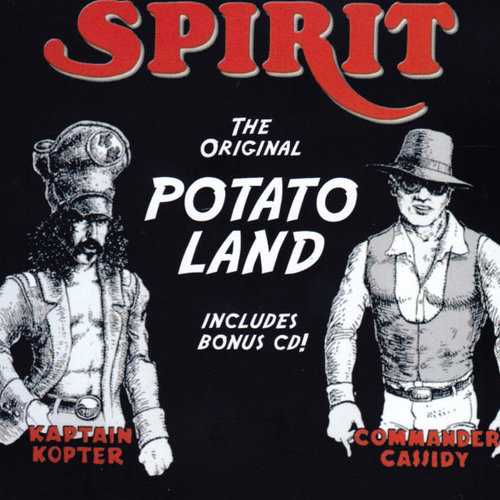 | Album: 1 of 26 Title: The Original Potatoland Released: Tracks: 26 Duration: 1:19:46 Scroll: Up Down Top Bottom 25% 50% 75% AlbumCover | 1 Introduction (00:43) 2 1984 (03:49) 3 Exit 27 (01:23) 4 Turn to the Right (03:44) 5 Everything Talks to Me (03:44) 6 Fish Fry Road (03:24) 7 Natures Theme (00:45) 8 Information (03:11) 9 My Friend (02:49) 10 Walkin the Dog (03:01) 11 Giant Potatos (00:31) 12 Lonely in Potatoland (03:05) 13 Natures Way (02:38) 14 Salvation: Matter of Time Suite (05:30) 15 1984 (reprise) (00:44) 16 Oil Slick - Million Years Suite (04:32) 17 Information (reprise) (01:46) 18 Its Time Now (04:53) 19 You Know (bonus studio track) (01:29) 20 Donut House (alternate studio) (03:40) 21 Aint That Too Bad (live) (03:17) 22 Devil (live) (04:49) 23 Shotgun (live) (04:35) 24 Get Out My Life Woman (live) (05:54) 25 Miss This Train (live) (03:12) 26 [Interview with Bob Harris, BBC April 1973] (02:27) |
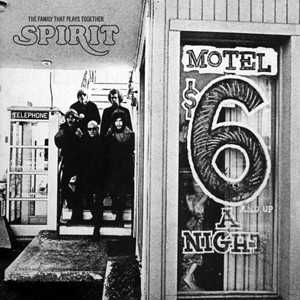 | Album: 2 of 26 Title: The Family That Plays Together Released: 1968 Tracks: 11 Duration: 37:28 Scroll: Up Down Top Bottom 25% 50% 75% Spotify TrackSamples Wikipedia Allmusic AlbumCover | 1 I Got a Line on You (02:38) 2 It Shall Be (03:24) 3 Poor Richard (02:31) 4 Silky Sam (04:57) 5 Drunkard (02:27) 6 Darlin’ If (02:27) 7 It’s All the Same (04:41) 8 Jewish (03:23) 9 Dream Within a Dream (03:13) 10 She Smiles (02:21) 11 Aren’t You Glad (05:25) |
| The Family That Plays Together : Allmusic album Review : On this, the second Spirit album, the group put all of the elements together that made them the legendary (and underrated) band that they were. Jazz, rock & roll, and even classical elements combined to create one of the cleanest, most tasteful syntheses of its day. The group had also improved measurably from their fine debut album, especially in the area of vocals. The albums hit single, "I Got a Line on You," boasts especially strong harmonies as well as one of the greatest rock riffs of the period. The first side of this record is a wonderful and seamless suite, and taken in its entirety, one of the greatest sides on Los Angeles rock. The CD reissue also boasts some excellent bonus tracks. "So Little to Say" is one of Jay Fergusons finest compositions ever, and the jazz-inspired instrumentals such as "Fog" and "Space Chile" showcase pianist John Locke as one of the most inspired and lyrical players in the rock idiom to date. All in all, a classic album and a true landmark. | ||
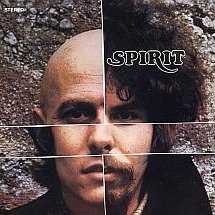 | Album: 3 of 26 Title: Spirit Released: 1968 Tracks: 15 Duration: 1:03:24 Scroll: Up Down Top Bottom 25% 50% 75% Spotify Allmusic Wikipedia AlbumCover | 1 Fresh‐Garbage (03:11) 2 Uncle Jack (02:43) 3 Mechanical World (05:16) 4 Taurus (02:37) 5 Girl in Your Eye (03:15) 6 Straight Arrow (02:51) 7 Topanga Windows (03:36) 8 Gramophone Man (03:49) 9 Water Woman (02:11) 10 Great Canyon Fire in General (02:46) 11 Elijah (10:49) 12 Veruska (02:51) 13 Free Spirit (04:28) 14 If I Had a Woman (03:12) 15 Elijah (alternate take) (09:42) |
| Spirit : Allmusic album Review : Spirits debut unveiled a band that seemed determine to out-eclecticize everybody else on the California psychedelic scene, with its melange of rock, jazz, blues, folk-rock, and even a bit of classical and Indian music. Teenaged Randy California immediately established a signature sound with his humming, sustain-heavy tone; middle-aged drummer Ed Cassidy gave the group unusual versatility; and the songs tackled unusual lyrical themes, like "Fresh Garbage" and "Mechanical World." As is often the case in such hybrids, the sum fell somewhat short of the parts; they could play more styles than almost any other group, but couldnt play (or, more crucially, write) as well as the top acts in any given one of those styles. Theres some interesting stuff here, nonetheless; "Uncle Jack" shows some solid psych-pop instincts, and it sounds like Led Zeppelin lifted the opening guitar lines of "Taurus" for their own much more famous "Stairway to Heaven." | ||
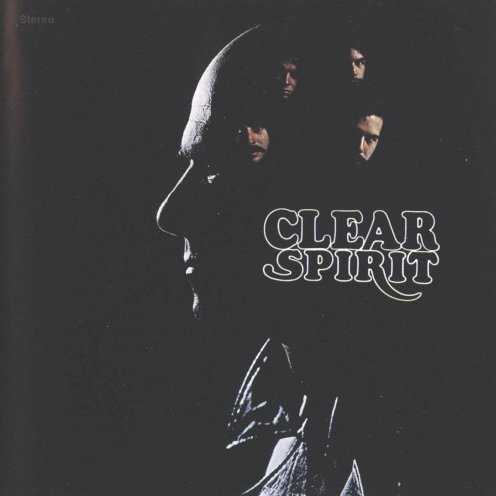 | Album: 4 of 26 Title: Clear Released: 1969 Tracks: 12 Duration: 42:43 Scroll: Up Down Top Bottom 25% 50% 75% Spotify Allmusic AlbumCover | 1 Dark Eyed Woman (03:10) 2 Apple Orchard (04:09) 3 So Little Time to Fly (02:50) 4 Ground Dog (03:06) 5 Cold Wind (03:27) 6 Policemans Ball (02:24) 7 Ice (05:52) 8 Give a Life, Take a Life (03:25) 9 Im Truckin (02:27) 10 Clear (04:10) 11 Caught (03:14) 12 New Dope in Town (04:23) |
| Clear : Allmusic album Review : Although this album may not be seen as the definitive Spirit statement, it has several moments of brilliance that prove what a revolutionary band they were. Coming off of the success of The Family That Plays Together and "I Got a Line on You," the group entered the studio with Lou Adler once again in the producers chair. Unfortunately, the group appeared to be beginning to fragment, and it shows on this uneven but ultimately fine album. "Dark Eyed Woman" opens the album with promise, and it is indeed one of Spirits hardest-rocking studio performances. Randy Californias inspired guitar solo is one of the finest performances of the period. The riff and general feel of the track (right down to the siren sound effects) were borrowed by Traffic on "Shoot Out at the Fantasy Factory." The record tends to go downhill from there (primarily due to some uninspired songwriting), but is not without its high points, like "Cold Wind" and the awesome closer "New Dope in Town." | ||
![Allmusic album Review : Although Twelve Dreams of Dr. Sardonicus has the reputation of being Spirits most far-out album, it actually contains the most disciplined songwriting and playing of the original lineup, cutting back on some of the drifting and offering some of their more melodic tunes. The lilting "Natures Way" was the most endearing FM standard on the album, which also included some of Spirits best songs in "Animal Zoo" and "Mr. Skin." [The 1996 CD reissue has four bonus tracks, though these are on the nonessential side: mono versions of "Animal Zoo" and "Morning Will Come," the 1970 single "Red Light Roll On," and the previously unissued "Rougher Road."] twelve_dreams_of_dr_sardonicus](../../images/spirit-twelve_dreams_of_dr_sardonicus.jpg) | Album: 5 of 26 Title: Twelve Dreams of Dr. Sardonicus Released: 1970 Tracks: 12 Duration: 39:09 Scroll: Up Down Top Bottom 25% 50% 75% Spotify TrackSamples Allmusic Wikipedia AlbumCover | 1 Prelude / Nothin’ to Hide (03:44) 2 Nature’s Way (02:31) 3 Animal Zoo (03:22) 4 Love Has Found a Way (02:42) 5 Why Can’t I Be Free (01:05) 6 Mr. Skin (03:51) 7 Space Child (03:46) 8 When I Touch You (05:19) 9 Street Worm (03:43) 10 Life Has Just Begun (03:31) 11 Morning Will Come (02:51) 12 Soldier (02:44) |
| Twelve Dreams of Dr. Sardonicus : Allmusic album Review : Although Twelve Dreams of Dr. Sardonicus has the reputation of being Spirits most far-out album, it actually contains the most disciplined songwriting and playing of the original lineup, cutting back on some of the drifting and offering some of their more melodic tunes. The lilting "Natures Way" was the most endearing FM standard on the album, which also included some of Spirits best songs in "Animal Zoo" and "Mr. Skin." [The 1996 CD reissue has four bonus tracks, though these are on the nonessential side: mono versions of "Animal Zoo" and "Morning Will Come," the 1970 single "Red Light Roll On," and the previously unissued "Rougher Road."] | ||
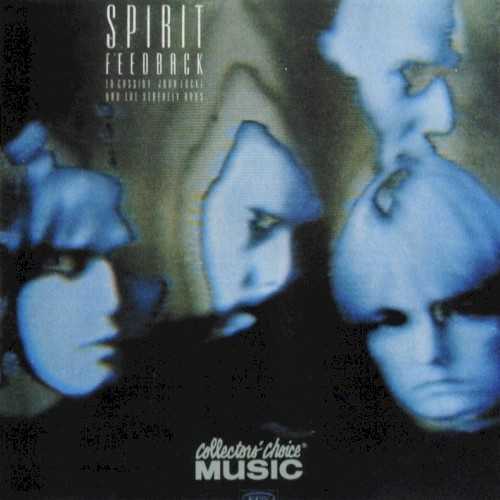 | Album: 6 of 26 Title: Feedback Released: 1972 Tracks: 10 Duration: 34:51 Scroll: Up Down Top Bottom 25% 50% 75% Spotify Allmusic Wikipedia AlbumCover | 1 Chelsea Girls (03:29) 2 Cadillac Cowboys (03:38) 3 Puesta del Scam (02:01) 4 Ripe and Ready (03:53) 5 Darkness (04:47) 6 Earth Shaker (03:54) 7 Mellow Morning (02:22) 8 Right on Time (02:47) 9 Trancas Fog‐Out (02:37) 10 Witch (05:20) |
| Feedback : Allmusic album Review : Feedback is one of the strangest happenings in rock, more dramatic than Michael MacDonald taking over the Doobie Brothers, but more successful artistically than it was financially, and a chapter of the group that is sadly forgotten. The original band was produced by Lou Adler and built around guitar prodigy Randy California, and a bit of history is in order to understand this hybrid project. David Briggs, producer of Kathi MacDonald, Alice Coopers Easy Action, and Neil Young, helped the band forge their classic Twelve Dreams of Dr. Sardonicus and was retained for this follow-up. William Ruhlmanns liner notes to Spirits Time Circle Epic/Legacy release notes that Randy California resigned from the group at this point. Mark Andes and Jay Ferguson formed Jo Jo Gunne with Curly Smith, and Smiths friends, the Staehely Brothers, joined Cassidy and company. What Ed Cassidy and keyboard player John Locke created with producer David Briggs was a phenomenal reinvention of Spirit, which worked, sometimes better than the original group. Bassist/vocalist Al Staehely wrote the music, with guitar chores and backing vocals by his brother J. Christian Staehely. "Witch," the final track on the disc, is typical of this new Spirit sound, a fusion of pop/jazz/rock with a dab of country. It would have been a perfect blend for Randy California to step back into, though his ego might have been the stumbling block here. In concert, this version of Spirit was serious and precise, playing with a cool efficiency. David Briggs was the perfect guy to oversee this project, allowing the musicians their space and developing a true counterpart to The Twelve Dreams of Dr. Sardonicus, considered by many to be the bands highpoint. The cover is in eerie aqua blue with the faces looking like spirits peering out of a distorted television. The gatefold contains a band photo and a smart evolutionary image for this eclectic and underrated West Coast band. Heres the clincher: musically, some of the best work on Feedback are the two instrumentals by keyboard player John Locke, "Puesta Del Scam" and "Trancas Fog-Out," fragments of the original "Spirit" performed by this new quartet. The stuff is brilliant, and that it was excised from Time Circle is a pity. It was this writer who put Epic/Legacy in touch with Randy California in the development of 1991s Time Circle compilation project, and certainly the elegant "Darkness," the third John Locke title, deserved to be included on that double disc, and some representation of this remarkable work would have been appropriate rather than nine whopping cuts from The Twelve Dreams of Dr. Sardonicus. Jo Jo Gunne guitarist Matthew Andes (brother of Spirits Mark Andes) co-wrote "Mellow Morning" with Al Staehely, and it, along with "Right on Time" and "Ripe and Ready," all display the Spirit vibe, even hinting at some Jo Jo Gunne, as strange as that may seem. The Cassidy/Locke/Staehely/Staehely combo added enough jazz to Spirit to temper the all out assault that was Jo Jo Gunne, and therein lies the difference. This is not David Bowies ex-drummer and bassist forming the Spiders From Mars; keep in mind that Ed Cassidy was not only the bands insignia with his Yul Brynner look, he was this groups spiritual leader. As Randy Californias step-dad, its a shame he didnt get more firm with the boy and demand they all be "the family that plays together." Had the Staehely brothers and John Locke stayed on board for Cassidy and Randy Californias next project, the erratic Potatoland disc may have mutated into something totally brilliant. The best of Al Staehely, John Locke, and Randy California would have been truly something. Feedback is a solid performance and remarkable album which deserves its place in the Spirit catalog, and not the status of bastard son. It is a legitimate Spirit project and it is very, very good. | ||
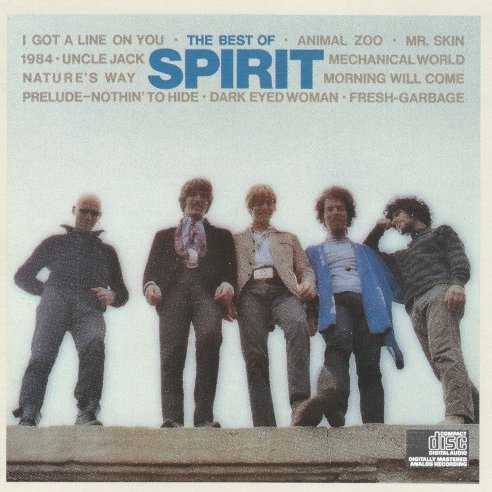 | Album: 7 of 26 Title: The Best of Spirit Released: 1973 Tracks: 11 Duration: 36:49 Scroll: Up Down Top Bottom 25% 50% 75% Spotify Allmusic AlbumCover | 1 1984 (03:37) 2 Mechanical World (05:18) 3 Nature’s Way (02:29) 4 Animal Zoo (03:17) 5 Fresh‐Garbage (03:12) 6 I Got a Line on You (02:39) 7 Prelude—Nothin’ to Hide (03:41) 8 Uncle Jack (02:45) 9 Morning Will Come (02:52) 10 Dark Eyed Woman (03:08) 11 Mr. Skin (03:51) |
| The Best of Spirit : Allmusic album Review : Its true that Spirit were a very album-oriented band, one that might best be experienced through albums rather than compilations. If a compilations good enough for you, this is a good one to get. Granted, the bands mere handful of well-known songs are gotten out of the way right away ("1984," "Mechanical World," "Natures Way," "Animal Zoo," "Fresh-Garbage," "I Got a Line on You"). But the rest of its pretty solid too, including "Uncle Jack," a high point of pseudo-Beatleish psychedelia. Given the tendency of some of the albums from which these are taken to meander, this is actually a good alternative for the listener who likes Spirits most accessible tunes, but isnt enamored of their full-length works. | ||
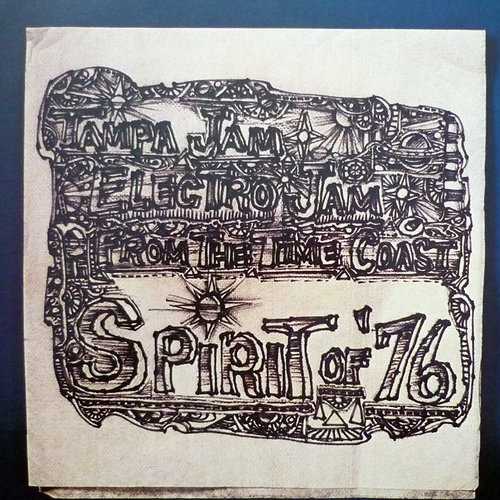 | Album: 8 of 26 Title: Spirit of ’76 Released: 1975-05 Tracks: 25 Duration: 1:22:20 Scroll: Up Down Top Bottom 25% 50% 75% Spotify Allmusic Wikipedia AlbumCover | 1 America the Beautiful / The Times, They Are A‐Changing (05:26) 2 Victim of Society (03:01) 3 Lady of the Lakes (02:51) 4 Tampa Jam, Part 1 (00:54) 5 Maunaloa (01:55) 6 What Do I Have (02:02) 7 Sunrise (03:03) 8 Walking the Dog (03:09) 9 Tampa Jam, Part 2 (01:05) 10 Joker on the Run (03:57) 11 When? (04:27) 12 Like a Rolling Stone (08:56) 1 Once Again (03:22) 2 Feeling in Time (03:25) 3 Happy (03:16) 4 Jack Bond (01:38) 5 My Road (04:14) 6 Tampa Jam, Part 3 (00:49) 7 Thank You Lord (01:48) 8 Urantia (04:00) 9 Guide Me (03:49) 10 Veruska (04:00) 11 Hey Joe (06:32) 12 Jack Bond, Part 2 (00:44) 13 The Star Spangled Banner (03:45) |
| Spirit of ’76 : Allmusic album Review : This 1975 release on Mercury has Randy California and Ed Cassidys names imprinted boldly on the cover as Spirit, and the 26 songs -- starting with "America the Beautiful/The Times They Are a Changin" and concluding with "The Star Spangled Banner" -- are more than just a sly tribute to the bicentennial. They are the most fluid and satisfying statement by the California/Cassidy version of the band, who would be together for another 20 years before Californias untimely passing. As ethereal and icy as Feedback, the album Cassidy recorded with the Stahely brothers, there are all sorts of hidden meanings projected throughout this double-vinyl LP. Randy California gives more than a few nods to his work with Jimi Hendrix -- covers of "Like a Rolling Stone" and "Hey Joe" are two of Hendrixs more notable and triumphant revisions -- while "The Star Spangled Banner" has a smart vocal, separating it from Californias more famous ex-bandmates Woodstock instrumental rendition. This double-record set was the first of four albums by Spirit for the Mercury label in the mid-70s, all released between 1975-1977. This is the second album Ed Cassidy and Randy California put together after Cassidy recorded the Feedback disc in 1972 for Epic. The 1973 album came out in 1981 as Potatoland on Line Records in Germany and is not usually put in proper chronological order. What is musically interesting about this is that Randy California on Spirit of 76 sounds like the 1972 Stahely brothers version of Spirit. No, the jazz is not here, but his use of acoustic guitar and effects on his electric guitar makes for less bite and more soothing, spacy sounds. It is arguably the best full album the Randy California/Ed Cassidy Spirit recorded without the other original members. A terrific anthem, "One by One," was recorded in 1993-1994 and might be the duos best song, but this album remains a major achievement for Randy California, a long and elaborate vision put over four sides of vinyl. The tragedy is that no hit single obtained airplay that could have given this project wider exposure. There are more covers than usual too, and unique arrangements -- the pairs understanding of "Happy," for example. It is interesting that producer Jimmy Miller played the drums and recorded the Rolling Stones version of "Happy" with Keith Richards, with their Exile on Main St. demo track becoming a hit. Drummer Ed Cassidy takes Millers role, with Randy California being Richards, and they do a nice, mutated version still faithful to the spirit of the original Keith Richards jam with his producer. The depth and intrigue built into the grooves and packaging of Spirit of 76 was a fine direction for this Spirit, and it is too bad Randy California felt so bitter about the industry to lose focus. As Jimi Hendrix kept the recorders rolling, California should have done the same thing over the years, capturing his live magic, seeking out that audience the Grateful Dead tuned into. Spirit of 76 is the best example of California veering off into different directions and coming up with satisfying sounds. Two albums later, Mark Andes would bring his brother, Matt Andes, from Jo Jo Gunne into the fold and re-form with Cassidy, California, and John Lockefor 1976s Farther Along. But that would be a short-lived fusion of multiple songwriting talents. On Spirit of 76, Randy California has all systems go to paint spacy pictures like "Urantia," or the very interesting take on Rufus Thomas "Walking the Dog." The covers of three of the songs Hendrix covered would remain in the Spirit set for the rest of their days, and they are here in elegant studio versions. Spirit of 76 remains the key to understanding the group who toured as Spirit for the better part of the three decades that the group existed, the stepdad and the guitar prodigy on their own. Its an offbeat work of art that works just beautifully. | ||
 | Album: 9 of 26 Title: Farther Along Released: 1976 Tracks: 12 Duration: 31:18 Scroll: Up Down Top Bottom 25% 50% 75% Allmusic Wikipedia AlbumCover | 1 Farther Along (03:23) 2 Atomic Boogie (02:39) 3 World Eat World Dog (02:46) 4 Stoney Night (02:30) 5 Pineapple (02:11) 6 Colossus (03:01) 7 Mega Star (03:26) 8 Phoebe (02:10) 9 Dont Lock Up Your Door (03:13) 10 Once With You (01:32) 11 Diamond Spirit (02:28) 12 Natures Way (01:59) |
| Farther Along : Allmusic album Review : This 1976 reunion of Spirit without Jay Ferguson, but with the inclusion of Matt Andes, brother of original bassist Mark Andes, who is also here, has some very special moments. The title track is a little R&B-folk; number by Randy California, Andes, and Cassidy, while the second song, "Atomic Boogie," is California indulging himself again in musical excess. The entire band is listed as co-writers on this tune only, so they can all shoulder the blame for the weakest track on an otherwise excellent album that features many collaborations by the various musicians. "World Eat World Dog" is a nice slice of the old-style Spirit by John Locke, California, and Ed Cassidy, setting a mood and featuring conducting and arrangements by David Blumberg. "Stoney Night" continues in this vein, horns battling the bubbling guitars and providing proof that the collective forces of Spirit were truly a unique and important rock group. The John Locke instrumental "Pineapple" doesnt need words to convey the Hawaiian theme which runs through much of Californias music. He doesnt have to write the song to influence it heavily. The percussion and vibes are magical, while John Lockes keyboards more than hint at what was missing when the band crafted recordings or played live without him. Al Schmitts production shines on "Colossus"; the award-winning engineer for so many artists and Jefferson Airplane producer is in his element here. Note the Don Henderson-orchestrated instrumental version of the groups FM nugget "Natures Way," which ends the set. This third Mercury release in the mid-70s takes a couple of songs to get going, but the collaboration with the Andes brothers and John Locke puts Cassidy and California back into a true band setting, and the package becomes a very musical and cohesive unit. "Phoebe" is another luscious instrumental (three of the dozen titles are music with no words), while a Beatles-style "Once With You" and "Diamond Spirit," with its inclusion of the title track melody at the end, allow California to front a full Spirit without battling the strong personality of a Jay Ferguson. The Andes brothers, who backed up Ferguson with his Jo Jo Gunne band, are more interesting in this setting as well, and give support to Californias music. Had the Staehely Brothers from the Feedback album combined here rather than the Andes boys, the direction would have totally changed, and it is an interesting thought to ponder. The five discs that make up the four Mercury 1970s releases from Spirit have great merit, and the best of this music could be combined with Epic/Legacys Time Circle double CD to make for a nice four- or five-disc overview of this important set of sounds from an underrated band. | ||
 | Album: 10 of 26 Title: Future Games Released: 1977 Tracks: 22 Duration: 44:29 Scroll: Up Down Top Bottom 25% 50% 75% Wikipedia AlbumCover | 1 CB Talk (00:45) 2 Stars of Love (02:27) 3 Kahauna Dream (02:59) 4 Buried in My Brain (02:54) 5 Bionic Unit (03:08) 6 So Happy Now (00:17) 7 All Along the Watchtower (04:10) 8 Would You Believe (03:06) 9 Jack Bond Speaks (01:46) 10 Star Trek Dreaming (02:15) 11 Interlude XM (00:29) 12 China Doll (01:57) 13 Hawaiian Times (00:13) 14 Gorn Attack (02:09) 15 Interlude 2001 (00:25) 16 Detroit City (03:55) 17 Freakout Frog (02:03) 18 The Romulan Experience (00:55) 19 Monkey See Monkey Do (01:36) 20 Mt. Olympus (00:28) 21 The Journey of Nomad (02:27) 22 Ending (03:55) |
 | Album: 11 of 26 Title: Live at the Rainbow 1978 Released: 1980 Tracks: 9 Duration: 43:00 Scroll: Up Down Top Bottom 25% 50% 75% Allmusic AlbumCover | 1 Looking Down (07:41) 2 Animal Zoo (04:08) 3 1984 (03:22) 4 Nature’s Way (03:19) 5 Hollywood Dream (04:10) 6 It’s All the Same (09:58) 7 I Got a Line on You (03:07) 8 Downer (03:28) 9 Wild Thing (03:45) |
 | Album: 12 of 26 Title: The Thirteenth Dream Released: 1984-06 Tracks: 10 Duration: 39:59 Scroll: Up Down Top Bottom 25% 50% 75% Allmusic AlbumCover | 1 Black Satin Nights (03:12) 2 Mr. Skin (03:39) 3 Mechanical World (05:50) 4 Pick It Up (03:00) 5 All Over the World (03:57) 6 1984 (03:59) 7 Uncle Jack (02:59) 8 Nature’s Way (02:44) 9 Fresh Garbage (03:05) 10 I Got a Line on You (07:34) |
| The Thirteenth Dream : Allmusic album Review : Although Spirit achieved only moderate commercial success in its original configuration from 1968 to 1971, its music turned out to be influential and perennially popular; its last album, Twelve Dreams of Dr. Sardonicus, went gold six years after it was released. That appeal was reinforced by the success of the individual members. While guitarist Randy California and Ed Cassidy continued to lead changing lineups under the Spirit banner, lead singer Jay Ferguson and bassist Mark Andes formed Jo Jo Gunne, after which Ferguson went solo and Andes formed Firefall, before joining Heart, and keyboardist John Locke played with Hawkwind, among others. Prior commitments as much as anything else kept the original quintet from re-forming in any sustained manner. But The Thirteenth Dream (known as Spirit of 84 in the U.S.) was the closest they came, a get-together recorded live in the studio during late 1982 and given major-label release in 1984. Augmented by 13 guest musicians, Spirit ran through seven of their old numbers and added three new songs. Two of the new ones were written by Ferguson, and they were more in his solo style (and in the mold of early-80s synthesizer-heavy pop/rock) than that of the band. Leadoff track "Black Satin Nights," in particular, had the potential to be a hit, had it been released as a single and promoted. In contrast, California, the other leading songwriter in the band, co-wrote "All Over the World," an overt paean to the 60s peace-and-love worldview. Had the two created an albums worth of material, perhaps with some creative participation from Locke, the result might have been a collection that at least updated the Spirit sound for the 80s. As it was, the album was dominated by the remakes, which, not surprisingly, were inferior to the original recordings, but which served to remind listeners how good those recordings had been. The disc concluded with a seven-and-a-half-minute rendition of Spirits sole Top 40 hit, "I Got a Line On You," featuring a guitar army that included heavy hitters like Bob Welch and Jeff Baxter. It had the feel of a victory lap, but for a band that never quite won the prize in the first place. Not surprisingly, The Thirteenth Dream proved to be a one-off reunion, after which the bandmembers went back to their usual occupations. | ||
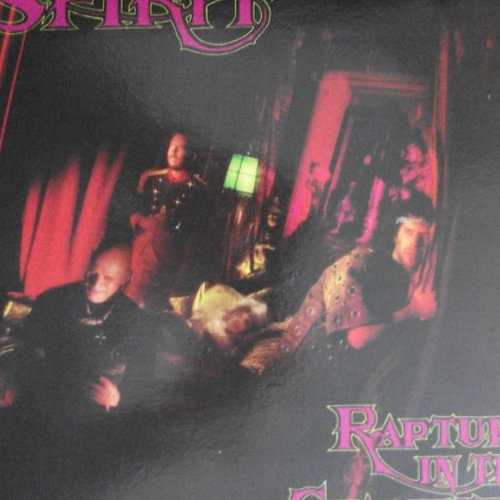 | Album: 13 of 26 Title: Rapture in the Chambers Released: 1989 Tracks: 12 Duration: 39:40 Scroll: Up Down Top Bottom 25% 50% 75% Allmusic Wikipedia AlbumCover | 1 Hard Love (03:23) 2 Love Tonight (02:52) 3 Thinking Of (04:19) 4 Rapture in the Chambers (03:17) 5 Mojo Man (02:33) 6 Contact (02:48) 7 The Prisoner (04:19) 8 One Track Mind (03:24) 9 Enchanted Forest (03:29) 10 Human Sexuality (03:02) 11 Shera Princess of Power (03:35) 12 End Suite (02:34) |
| Rapture in the Chambers : Allmusic album Review : One of the less-expected releases of 1989 had to be the appearance of a new album by Spirit in the U.S. by a record company distributed by a major label. The groups last appearance in American record stores had been five-years earlier, with the poor-selling reunion LP Spirit of 84 (aka The Thirteenth Dream), largely consisting of re-recordings. Discounting a live album and an archival release that appeared on independent labels, the last time there had been an all-new Spirit album was 1977s Future Games: A Magical-Kahauna Dream. That LP was a solo recording by Spirit guitarist Randy California in all but name, and since then California had devoted much of his time to his solo career, releasing three solo albums internationally, but not in the U.S. Yet Californias participation in the package tour Night of the Guitar, sponsored by I.R.S. Records, the label run by Miles Copeland and generally focused on modern rock, led to the companys interest in a new Spirit album. For it, California rounded up ever-present drummer Ed Cassidy and keyboard player John Locke, and got bassist Mark Andes (lately a member of Heart) to play on a couple of tracks and co-write one. That accounted for four of the original five members of Spirit; singer/percussionist Jay Ferguson did not participate this time. Thats a key omission, though, since Ferguson was the other main creative force in the band. Without him, Rapture in the Chambers, like many Spirit albums since the breakup of the original group in 1971, is really a Randy California album. Of course, that isnt a bad thing, either. And the influence of the other members is not invisible. In particular, the lead-off track, "Hard Love," composed by Andes, is a good pop/rock tune, and "Contact," composed by Locke, has some of the flavor of early Spirit, along with highly referential lyrics ("Contact the Spirit in yourself"). Still, the album lacks the musical diversity that was typical of records by the original band. California constructs good rock tunes that showcase his exceptional lead guitar playing, and he writes lyrics that refer to common romantic concerns, promote environmental ideas, or seek spiritual uplift. Rapture in the Chambers is a more consistent effort than the Spirit albums of the mid-70s that California helmed. But fans of the original lineup will hear only echoes of the bands early sound. | ||
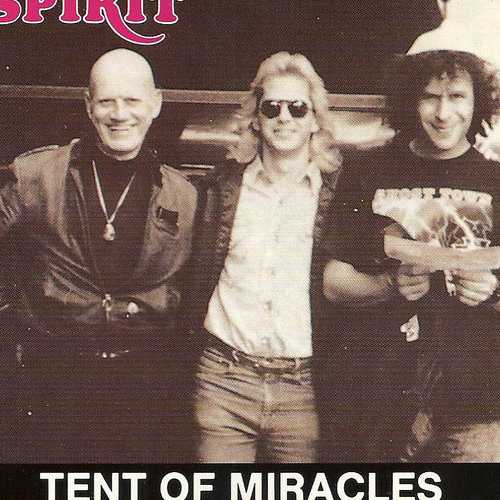 | Album: 14 of 26 Title: Tent of Miracles Released: 1990 Tracks: 12 Duration: 43:58 Scroll: Up Down Top Bottom 25% 50% 75% Allmusic AlbumCover | 1 Borderline (01:54) 2 Zandu (04:24) 3 Love From Here (03:47) 4 Ship of Fools (04:10) 5 Burning Love (03:06) 6 Tent of Miracles (05:55) 7 Logical Answers (02:26) 8 Old Black Magic (03:20) 9 Neglected Emotion (02:04) 10 Imaginary Mask (02:25) 11 Stuttgart Says Good-Bye (06:32) 12 Deep in This Land (03:55) |
| Tent of Miracles : Allmusic album Review : Tent of Miracles is one of the best Spirit albums by the trio version of the act, the Randy California/Ed Cassidy ensemble which carried on with the name. This time the third member is bassist Mike Nile, and the album works because Nile gets to be more than a sideman, he actually contributes as the original group did, with results that are most satisfying. Tent of Miracles is a wonderful album title, and the disc opens with Ed Cassidys jungle drumbeat instrumental "Borderline," typical of the bands bold 1990s sound. More serious and refined than the Mercury records releases in the mid-70s, decades on the road touring, along with having those highly experimental albums behind them, make this a very musical and mature chapter. "Zandu" is your Randy California "Kahauna Dream"-style exotic guitar with its mechanical metallic stomp, a song similar to but lighter than Roxy Musics "Manifesto." Californias co-write with stepdad Ed Cassidy, "Stuttgart Says Good-bye," is "Eight Miles High" gone tribal and expands the theme. This 1990 album has an inadvertent concept which is a delight to the legion of Spirit fans who cared enough to seek it out. The title track is an eerie "I Want Candy" redux with the real stunner being that it is a Mike Nile original, a major contribution from a Spirit member not originally part of the group. The almost six minutes mesmerize and are everything Spirit was ever about. It follows in the dreamy quagmire that is "Stuttgart Says Good-Bye" and the earlier "Love From Here" style. "Love From Here" has elements of the later 1994 track "One By One," a Randy California original which outdoes the excellent "Love From Here," providing insight that the late singer/songwriter was in a groove and in a good creative state, despite lack of major label support for his latter-day efforts. The band actually becoming a full unit with serious contributions from the bass player adds a cohesion missing from some of the 70s work. Mike Niles originals not only keep pace with Randy California, they seem to give Randy and this version of the band focus. The final of the dozen songs, Niles "Deep in This Land" holds to the theme and sound of the title track, as well as Niles other originals, "Old Black Magic," "Ship of Fools," and the tune all three bandmembers composed, "Imaginary Mask." "Tent of Miracles" holds many secrets and is that extension of The Twelve Dreams of Dr. Sardonicus that California was seeking for so many years. | ||
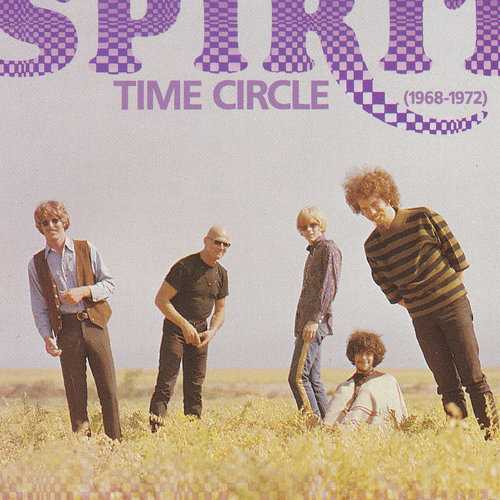 | Album: 15 of 26 Title: Time Circle Released: 1991 Tracks: 41 Duration: 2:19:14 Scroll: Up Down Top Bottom 25% 50% 75% Spotify AlbumCover | 1 Fresh Garbage (03:13) 2 Uncle Jack (02:45) 3 Mechanical World (05:16) 4 Taurus (02:37) 5 Girl in Your Eye (03:18) 6 Straight Arrow (02:51) 7 Topanga Windows (03:38) 8 Gramophone Man (03:51) 9 The Great Canyon Fire in General (02:48) 10 I Got a Line on You (02:47) 11 It Shall Be (03:28) 12 Poor Richard (02:29) 13 Silky Sam (04:10) 14 Sherozode (02:12) 15 All the Same (04:41) 16 Dream Within a Dream (03:01) 17 Arent You Glad (05:35) 18 Eventide (04:22) 19 Model Shoppe Theme (The Moving Van) (02:58) 20 Green Gorilla (02:19) 21 Rehearsal Theme (01:12) 1 Fog (02:24) 2 Now or Anywhere (04:22) 3 Dark-Eyed Woman (03:07) 4 So Little Time to Fly (02:48) 5 Ground Hog (03:12) 6 Ice (07:07) 7 Im Truckin (02:26) 8 New Dope in Town (04:24) 9 1984 (03:35) 10 Sweet Stella Baby (02:56) 11 Prelude - Nothing to Hide (03:42) 12 Natures Way (02:24) 13 Animal Zoo (03:27) 14 Love Has Found a Way (02:41) 15 Why Cant I Be Free (01:04) 16 Mr. Skin (03:51) 17 When I Touch You (05:36) 18 Street Worm (03:41) 19 Morning Will Come (02:51) 20 Turn to the Right (03:47) |
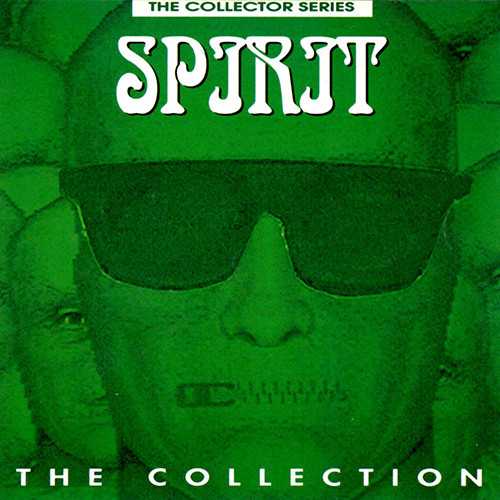 | Album: 16 of 26 Title: The Collection Released: 1992 Tracks: 18 Duration: 1:05:03 Scroll: Up Down Top Bottom 25% 50% 75% Spotify AlbumCover | 1 Prelude - Nothin to Hide (03:42) 2 Animal Zoo (03:18) 3 Nature’s Way (02:32) 4 Mr. Skin (03:50) 5 When I Touch You (05:36) 6 Morning Will Come (02:51) 7 Fresh‐Garbage (03:11) 8 Uncle Jack (02:44) 9 Mechanical World (05:16) 10 I Got a Line on You (02:41) 11 Dark Eyed Woman (03:07) 12 1984 (03:36) 13 Clear (04:08) 14 Silky Sam (03:43) 15 A Dream Within a Dream (02:58) 16 Straight Arrow (02:51) 17 Girl in Your Eye (03:15) 18 Ice (05:40) |
 | Album: 17 of 26 Title: I Got a Line on You Released: 1995-04 Tracks: 10 Duration: 32:14 Scroll: Up Down Top Bottom 25% 50% 75% Allmusic AlbumCover | 1 I Got a Line on You (02:41) 2 It Shall Be (03:00) 3 Im Truckin (02:26) 4 So Little Time to Fly (02:47) 5 Arent You Glad (05:32) 6 1984 (03:36) 7 Nature’s Way (02:29) 8 Uncle Jack (02:44) 9 Fresh Garbage (03:13) 10 Prelude - Nothin to Hide (03:42) |
| I Got a Line on You : Allmusic album Review : Assembled by Sony Musics Special Products division, I Got a Line On You is a budget-priced ten-track summary of Spirits first four albums. Spirit wasnt really a singles band, scoring only one Top 40 hit, "I Got a Line On You," and the album isnt billed as a "greatest-hits" or "best-of" collection, so perhaps the absence of such singles as "Mechanical World," "Dark Eyed Woman," "Animal Zoo," and "Mr. Skin" is less surprising, despite the presence of the title song, "1984," and "Natures Way," also released as singles. Album tracks "Uncle Jack," "Fresh Garbage," and "Prelude - Nothin to Hide" would be on the lists of most Spirit fans as among the best tracks by the original band. The other songs included here -- "It Shall Be," "Im Truckin," "So Little Time to Fly," and "Arent You Glad" -- give some sense of the bands musical diversity. But the collection would have been stronger overall if some of the better-known material had been used instead. | ||
 | Album: 18 of 26 Title: California Blues Released: 1996-12-03 Tracks: 12 Duration: 1:07:49 Scroll: Up Down Top Bottom 25% 50% 75% Allmusic Wikipedia AlbumCover | 1 California Blues (04:06) 2 Look Over Yonder (02:38) 3 The River (04:48) 4 Call on Me (03:04) 5 Crossroads (05:50) 6 Song for Clyde (05:45) 7 Pawn Shop Blues (02:46) 8 Sugar Mama (03:22) 9 Red House (05:37) 10 Gimme Some Lovin (03:41) 11 We Believe (03:21) 12 One World / Like a Dog / Poem for John Lennon / Shoes Back On / Tell Everyone (22:45) |
| California Blues : Allmusic album Review : California Blues is both Spirits first new studio album in six years and -- due to the accidental death of guitarist/singer/songwriter Randy California -- its last. For its release, the ever-changing band consists of California and drummer Ed Cassidy, as usual the sole original members; Matt Andes, brother of original bassist Mark Andes, on slide guitar; Steve (Liberty) Loria, a bassist who has been in several lineups of the band since the 1970s; and singer Rachel Andes, Matt Andes daughter. Original keyboardist John Locke, credited as a guest musician, plays on four tracks. The album is, to a certain extent, Spirits blues album, as its title suggests, but it is really a grab bag of different material from different sources. In addition to a handful of new Randy California originals ("California Blues," "The River," "Call On Me," "Song for Clyde," "We Believe," and "One World"), there are several covers: "Look Over Yonder" and "Red House" (in a 1993 live recording) by Californias mentor, Jimi Hendrix; a Cream-style arrangement of Robert Johnsons "Crossroads"; Sonny Terry & Brownie McGhees "Pawn Shop Blues"; Howlin Wolfs "Sugar Mama" featuring the Doors Robbie Krieger on lead guitar; and the Spencer Davis Groups "Gimme Some Lovin" with Davis himself on guitar and background vocals. And after the album proper ends with the anthemic "One World," there is an extended bonus-tracks section that includes Californias "Poem for John Lennon" and, as a treat for Spirit fans, three low-fidelity live performances by the original Spirit at the Magic Mushroom nightclub in Los Angeles, circa 1967 -- "Shoes Back On," "Tell Everyone," and "Soundtrack for a Moth." Rachel Andes vocals are a good addition on the new songs, particularly the acoustic ballad "Call On Me," which is a duet between her and California. California Blues includes some excellent Randy California guitar playing and suggests new directions for Spirit that, unfortunately, the band would never be able to pursue, as well as featuring entertaining guest performances and historical curios. | ||
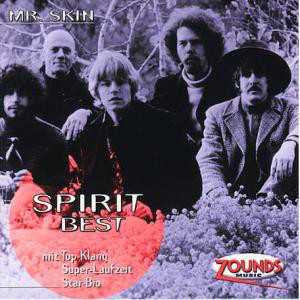 | Album: 19 of 26 Title: Best: Mr. Skin Released: 1999 Tracks: 18 Duration: 1:04:24 Scroll: Up Down Top Bottom 25% 50% 75% AlbumCover | 1 1984 (03:39) 2 Dark Eyed Woman (03:10) 3 Prelude - Nothing to Hide (03:44) 4 I Got a Line on You (02:42) 5 Taurus (02:39) 6 Natures Way (02:40) 7 Animal Zoo (03:14) 8 Fresh Garbage (03:13) 9 Im Truckin (02:26) 10 Mechanical World (05:17) 11 Morning Will Come (02:53) 12 Soldier (02:45) 13 Street Worm (03:42) 14 Free Spirit (04:28) 15 Uncle Jack (02:45) 16 Mr. Skin (04:02) 17 Apple Orchard (04:09) 18 Hey Joe (06:47) |
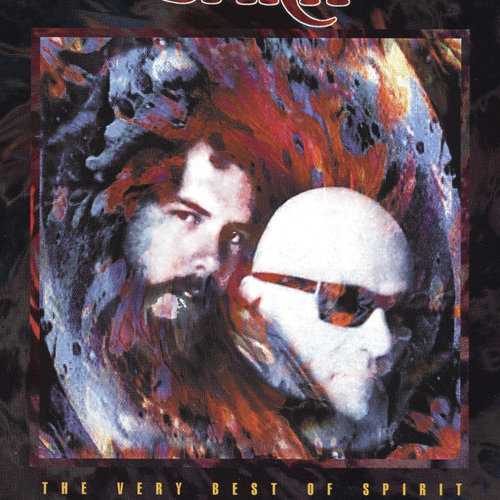 | Album: 20 of 26 Title: The Very Best of Spirit 100%Proof Released: 2000 Tracks: 20 Duration: 00:00 Scroll: Up Down Top Bottom 25% 50% 75% AlbumCover | 1 Fresh Garbage (?) 2 Uncle Jack (?) 3 Mechanical World (?) 4 I Got a Line on You (?) 5 Dark Eyed Woman (?) 6 1984 (?) 7 Natures Way (?) 8 Animal Zoo (?) 9 Mr Skin (?) 10 Day Tripper (?) 11 Mother & Child Reunion (?) 12 Walkin the Dog (?) 13 Turn to the Right (?) 14 Joker on the Run (?) 15 Like a Rolling Stone (?) 16 Hey Joe (?) 17 Holy Man (?) 18 Farther Along (?) 19 Mega Star (?) 20 All Along the Watchtower (?) |
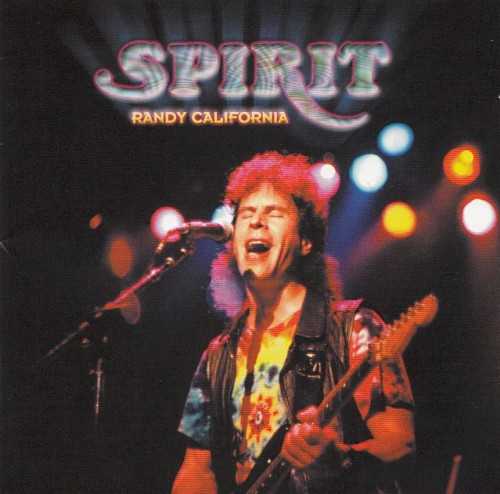 | Album: 21 of 26 Title: Sea Dream Released: 2002-09-03 Tracks: 28 Duration: 1:59:26 Scroll: Up Down Top Bottom 25% 50% 75% Allmusic AlbumCover | 1 Cages (04:55) 2 Just for You (03:26) 3 Line by Line (Water in the Eyes) (02:31) 4 Jack Rabbit (03:09) 5 Jailhouse (04:07) 6 Father and Son (03:10) 7 Ego Spray (02:59) 8 Suntronics (02:35) 9 Center for Truth (03:22) 10 Shock of Confusion (09:15) 11 Dirty (03:46) 12 Fallen Hero (Ode to JFK) (03:07) 13 2000 Miles (05:56) 14 Farther Along (07:10) 1 Hare Sai (04:47) 2 Hello Goodbye (02:41) 3 His Love (04:25) 4 Sea Dream Suite, Pt. 1: Whale (04:22) 5 Sea Dream Suite, Pt. 2: Heaven (01:12) 6 Sea Dream Suite, Pt. 3: Sign (04:12) 7 Sea Dream Suite, Pt. 4: T4/Sai Baba (03:16) 8 Sea Dream Suite, Pt. 5: Daylight (04:35) 9 Sea Dream Suite, Pt. 6: Dolphin (05:35) 10 Sea Dream Suite, Pt. 7: Garden of Creation (03:53) 11 Sea Dream Suite, Pt. 8: Heaven (02:11) 12 Nature’s Way (06:40) 13 Bhagavaghita (Loving You Is Singing Your Song) (02:05) 14 Question One (10:04) |
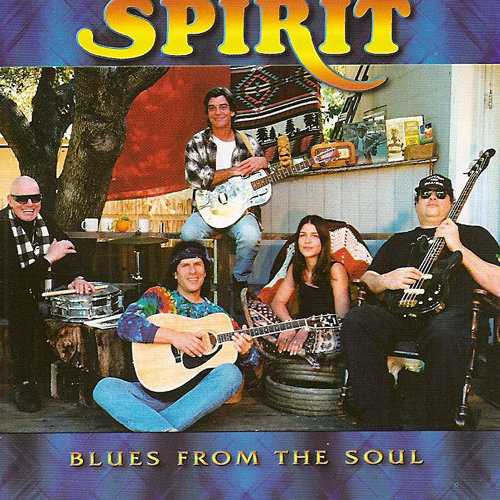 | Album: 22 of 26 Title: Blues From the Soul Released: 2003-08-05 Tracks: 35 Duration: 2:29:54 Scroll: Up Down Top Bottom 25% 50% 75% Allmusic AlbumCover | 1 Gonna Need Somebody on Your Bond (03:01) 2 Wagon of Wood (03:41) 3 Tell Me (Didnt Mean No Harm to You) (02:48) 4 Key to the Highway (02:31) 5 When Youre Smilin (01:49) 6 Pawn Shop Blues (03:38) 7 Ever Since You Left Me (04:02) 8 Kansas City (02:53) 9 Fixing to Die (Smoke My Ego Down) (03:57) 10 Pick a Bale of Cotton (02:31) 11 Run Sinner Run (01:57) 12 Cosmic Smile (A.K.A. the Other Song) (05:59) 13 Charlie James / Miss the Train (08:12) 14 Jimis Back (03:00) 15 Red House (07:49) 16 Kokomo (03:55) 17 Devine Love (03:30) 18 When the Saints Go Marchin In (02:38) 19 Like a Dog (01:58) 20 Lord Ill Be With You Always (02:31) 21 I Had a Dream (03:55) 1 The Letter (03:26) 2 Aint Superstitious (02:55) 3 Ever Since You Left Me (Maui Wowie) (03:29) 4 Poor Boy (06:19) 5 Cold Rainy Night (03:12) 6 California Blues (04:54) 7 Sugar Mama (04:32) 8 Charlie James (02:14) 9 Shattered Dreams (05:17) 10 Kokocass Jam (02:17) 11 Dreamy Eyes (04:13) 12 Miss the Train (04:45) 13 Down and Dirty Blues (24:13) 14 Last Night I Had the Strangest Dream (01:53) |
| Blues From the Soul : Allmusic album Review : This is the third in a series of posthumous albums of previously unreleased recordings by Randy California and Spirit, drawn from Californias archives and assembled by Mick Skidmore. As Skidmore explains in his detailed liner notes, California put together an album called Blues From the Soul around 1995, and even copyrighted its contents; but later opted to use some of the material on the final album he released with Spirit, California Blues, prior to his accidental death by drowning in January 1997. Other tracks from the proposed album were culled for the first posthumous release, Cosmic Smile. Skidmore has included all 13 of the songs California had intended to use on his version of Blues From the Soul, though he has substituted alternate takes or live recordings of tracks already issued. Of course, the album also has been vastly expanded to include 35 selections for a running time of two-and-a-half hours. But the basic concept remains the same, and that is to present a collection of folk and blues recordings. Californias family owned The Ash Grove nightclub when he was a child, and that brought him into contact with the many veteran acoustic blues musicians who toured during the folk revival of the early 1960s. Their influence on him is apparent here, as he resurrects songs by Mance Lipscomb, Sonny Terry and Brownie McGee, Mississippi Fred McDowell, Blind Willie Johnson, Big Bill Broonzy, Leadbelly, and Howlin Wolf. Many songs are done with an acoustic guitar, but they all feature Californias distinctive playing and singing. The lengthy set allows room for other material, including a 24-minute improvisation, "Down and Dirty Blues." Skidmore is less concerned with strictly adhering to the albums concept than he is to giving listeners more of Californias music, and its hard to argue with that. | ||
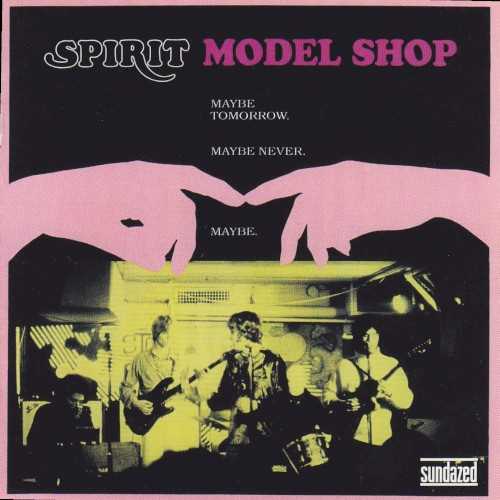 | Album: 23 of 26 Title: Model Shop Released: 2005 Tracks: 12 Duration: 41:00 Scroll: Up Down Top Bottom 25% 50% 75% Spotify Allmusic AlbumCover | 1 The Moving Van (01:56) 2 Mellow Fellow (02:50) 3 Now or Anywhere (04:40) 4 Fog (02:25) 5 Green Gorilla (02:13) 6 Model Shop I (02:02) 7 Model Shop II (Clear) (04:10) 8 The Rehearsal Theme (01:11) 9 Song for Lola (05:47) 10 Eventide (03:56) 11 Coral (04:22) 12 Arent You Glad (05:25) |
| Model Shop : Allmusic album Review : Sony Music and Sundazed Music certainly have gotten a lot of mileage out of Spirits outtakes. Sundazed head Bob Irwin served as digital producer of Time Circle (1968-1972), a 1991 Spirit compilation issued by Sonys Legacy reissue division, and for that disc he dug up some previously unreleased recordings the band made for its score to the 1969 film Model Shop, which never produced a soundtrack album. (Some of the Model Shop material turned up on Spirits 1969 album, Clear.) More of this music appeared on Legacys Irwin-produced 1996 CD reissues of Clear and the 1968 Spirit album The Family That Plays Together, as well as on Sundazeds 2000 rarities LP Eventide. Now, writes annotator Mick Skidmore, "thanks to the discovery of a master that contained the actual mono-mixed soundtrack," this album has been compiled to reconstruct what a soundtrack album might have sounded like if one had been issued in 1969. Although all the material has been heard before, seven of the 12 tracks are previously unissued takes or demos, and the whole disc is in mono. Spirit fans, who in any case have had ample opportunity to encounter the music before, will recognize it as representing the jazzier, more contemplative side of the band. Much of the music sounds, if not completely improvised, at least loosely structured, and it is largely instrumental, although the songs "Now or Anywhere," an outtake from The Family That Plays Together, and "Arent You Glad," that albums closing song, presented in a previously unreleased demo version, have vocals. For the most part, the music features only the band jamming, but "Model Shop II" has a string arrangement, presumably done by Marty Paich, the films music director, who also did such arrangements for Spirits albums of the period. Model Shop gathers together in one place Spirit material previously spread across several albums, but it is only a minor addition to their catalog and should mark the end of the exploitation of this portion of their music. | ||
![Allmusic album Review : Archivist Mick Skidmore, assembling his fourth collection of largely unreleased Spirit recordings for the British Acadia label (following Sea Dream, Blues from the Soul, and Live from the Time Coast), "puts more of an emphasis on [bandleader Randy Californias] songwriting abilities," as he reveals in his liner notes. In particular, Californias political views come out on several of the songs, his views for the most part reliably left-wing, with the possible exception of "City of Angels," an acoustic ballad that sounds like it may have been written around the time of the Los Angeles riot of 1992. In the song, California laments the rise of gangs and sympathizes with the outnumbered police, while taking something of an anti-immigrant posture, noting that his grandparents came to the U.S. "through the front door," while later immigrants have overrun the country, arriving "through the backdoor." As Skidmore notes, this seems a change in attitude from the more critical view of the police expressed in Californias 60s song "1984." Skidmore intersperses the songs with what are no doubt many guitar instrumental interludes to be found in Californias archives, filling up the albums first disc to 79-plus minutes. The second disc runs just as long, but some of it may sound familiar to Spirit fans. The first archival Spirit album to be released after Californias death, Cosmic Smile was compiled by Bruce Gary, and Skidmore presents what is essentially his version of that album on the second CD here, although most of the songs are presented in alternate or remixed form. This CD is billed as a "bonus disc," and indeed Acadia is charging only £1 more for the album than it does for its single-CD collections. But the U.S. list price is $24.95, so for Americans the "bonus" aspect of the set will be lost. Still, given that the poorly distributed Cosmic Smile sold fewer than 1,500 copies and is out of print, this album allows fans a second chance to acquire the material, another good bunch of California and Spirit songs consistent with the tracks on the first disc. son_of_america](../../images/spirit-son_of_america.jpg) | Album: 24 of 26 Title: Son of America Released: 2005-10-25 Tracks: 25 Duration: 1:19:40 Scroll: Up Down Top Bottom 25% 50% 75% Allmusic AlbumCover | 1 Space Jam (02:28) 2 The Prophecy (04:40) 3 Interlude #1 (01:27) 4 Thomas Q and Jennifer (04:15) 5 Sai Jam #1 (02:12) 6 20 Years (03:10) 7 Gyrations of War (01:29) 8 Son of America (04:19) 9 In the Dark (00:52) 10 Storm in the Night (02:47) 11 Gopal (03:42) 12 Sai Jam #2 (03:16) 13 Shock Values (04:33) 14 The Times They Are a Changing (04:28) 15 Interlude #2 (01:21) 16 Who Are You (01:45) 17 Breaking My Heart (Soul on Fire) (03:06) 18 Barking Up the Wrong Tree (04:08) 19 Back Home (02:59) 20 French Apartment (01:33) 21 City of Angels (02:35) 22 2007 (04:26) 23 Sai Jam #3 (04:53) 24 Let It Be (03:58) 25 Medley: Maybe Youll Find / When / Farther Along (05:18) |
| Son of America : Allmusic album Review : Archivist Mick Skidmore, assembling his fourth collection of largely unreleased Spirit recordings for the British Acadia label (following Sea Dream, Blues from the Soul, and Live from the Time Coast), "puts more of an emphasis on [bandleader Randy Californias] songwriting abilities," as he reveals in his liner notes. In particular, Californias political views come out on several of the songs, his views for the most part reliably left-wing, with the possible exception of "City of Angels," an acoustic ballad that sounds like it may have been written around the time of the Los Angeles riot of 1992. In the song, California laments the rise of gangs and sympathizes with the outnumbered police, while taking something of an anti-immigrant posture, noting that his grandparents came to the U.S. "through the front door," while later immigrants have overrun the country, arriving "through the backdoor." As Skidmore notes, this seems a change in attitude from the more critical view of the police expressed in Californias 60s song "1984." Skidmore intersperses the songs with what are no doubt many guitar instrumental interludes to be found in Californias archives, filling up the albums first disc to 79-plus minutes. The second disc runs just as long, but some of it may sound familiar to Spirit fans. The first archival Spirit album to be released after Californias death, Cosmic Smile was compiled by Bruce Gary, and Skidmore presents what is essentially his version of that album on the second CD here, although most of the songs are presented in alternate or remixed form. This CD is billed as a "bonus disc," and indeed Acadia is charging only £1 more for the album than it does for its single-CD collections. But the U.S. list price is $24.95, so for Americans the "bonus" aspect of the set will be lost. Still, given that the poorly distributed Cosmic Smile sold fewer than 1,500 copies and is out of print, this album allows fans a second chance to acquire the material, another good bunch of California and Spirit songs consistent with the tracks on the first disc. | ||
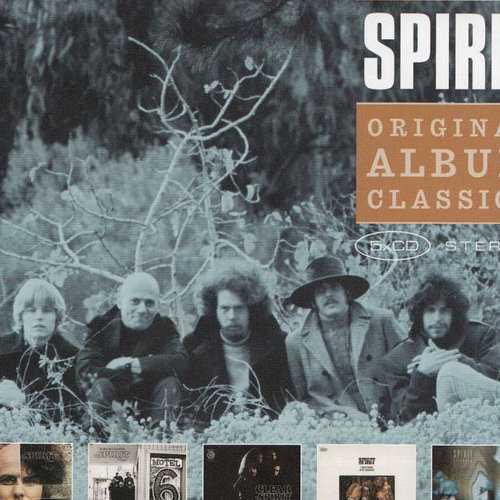 | Album: 25 of 26 Title: Original Album Classics Released: 2011 Tracks: 73 Duration: 4:25:11 Scroll: Up Down Top Bottom 25% 50% 75% AlbumCover | 1 Fresh‐Garbage (03:11) 2 Uncle Jack (02:43) 3 Mechanical World (05:16) 4 Taurus (02:37) 5 Girl in Your Eye (03:15) 6 Straight Arrow (02:51) 7 Topanga Windows (03:36) 8 Gramophone Man (03:49) 9 Water Woman (02:11) 10 Great Canyon Fire in General (02:46) 11 Elijah (10:49) 12 Veruska (02:51) 13 Free Spirit (04:28) 14 If I Had a Woman (03:12) 15 Elijah (alternate take) (09:42) 1 I Got a Line on You (02:38) 2 It Shall Be (03:24) 3 Poor Richard (02:29) 4 Silky Sam (04:05) 5 Drunkard (02:28) 6 Darlin’ If (03:38) 7 It’s All the Same (04:43) 8 Jewish (02:48) 9 Dream Within a Dream (03:02) 10 She Smiles (02:30) 11 Aren’t You Glad (05:34) 12 Fog (02:26) 13 So Little to Say (03:01) 14 Mellow Fellow (03:49) 15 Now or Anywhere (04:23) 16 Space Chile (06:26) 1 Dark Eyed Woman (03:07) 2 Apple Orchard (04:05) 3 So Little Time to Fly (02:48) 4 Ground Hog (03:04) 5 Cold Wind (03:23) 6 Policeman’s Ball (02:21) 7 Ice (05:51) 8 Give a Life, Take a Life (03:22) 9 I’m Truckin’ (02:24) 10 Clear (04:08) 11 Caught (03:10) 12 New Dope in Town (04:23) 13 1984 (03:36) 14 Sweet Stella Baby (02:55) 15 Fuller Brush Man (03:18) 16 Coral (03:05) 1 Prelude – Nothin’ to Hide (03:43) 2 Nature’s Way (02:40) 3 Animal Zoo (03:10) 4 Love Has Found a Way (02:42) 5 Why Can’t I Be Free (01:05) 6 Mr. Skin (04:01) 7 Space Child (03:25) 8 When I Touch You (05:37) 9 Street Worm (03:43) 10 Life Has Just Begun (03:29) 11 Morning Will Come (02:51) 12 Soldier (02:50) 13 Rougher Road (mono) (03:17) 14 Animal Zoo (mono single version) (03:10) 15 Morning Will Come (alternate mono mix) (02:50) 16 Red Light Roll On (mono) (05:41) 1 Chelsea Girls (03:29) 2 Cadillac Cowboys (03:38) 3 Puesta del Scam (02:01) 4 Ripe and Ready (03:53) 5 Darkness (04:47) 6 Earth Shaker (03:54) 7 Mellow Morning (02:22) 8 Right on Time (02:47) 9 Trancas Fog‐Out (02:37) 10 Witch (05:20) |
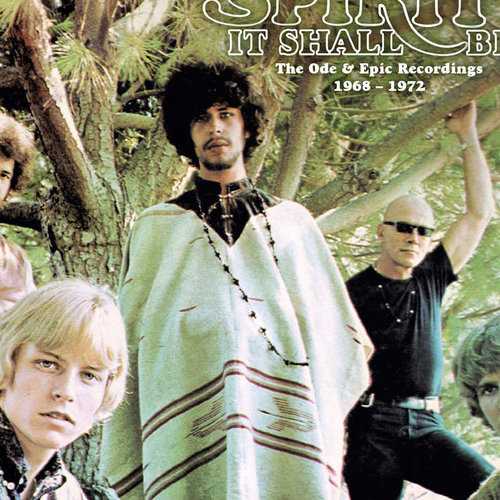 | Album: 26 of 26 Title: It Shall Be: Ode & Epic Recordings 1968–1972 Released: 2018-03-16 Tracks: 108 Duration: 5:08:11 Scroll: Up Down Top Bottom 25% 50% 75% AlbumCover | 1 Fresh‐Garbage (03:11) 2 Uncle Jack (02:43) 3 Mechanical World (05:16) 4 Taurus (02:37) 5 Girl in Your Eye (03:15) 6 Straight Arrow (02:51) 7 Topanga Windows (03:36) 8 Gramophone Man (03:49) 9 Water Woman (02:11) 10 Great Canyon Fire in General (02:46) 11 Elijah (10:49) 12 I Got a Line on You (original 1968 stereo mix) (?) 13 It Shall Be (original 1968 stereo mix) (?) 14 Poor Richard (original 1968 stereo mix) (?) 15 Silky Sam (original 1968 stereo mix) (?) 16 The Drunkard (original 1968 stereo mix) (?) 17 Darlin’ If (original 1968 stereo mix) (?) 18 All the Same (original 1968 stereo mix) (?) 19 Jewish (original 1968 stereo mix) (?) 20 Dream Within a Dream (original 1968 stereo mix) (?) 21 She Smiled (original 1968 stereo mix) (?) 22 Aren’t You Glad (original 1968 stereo mix) (?) 1 The Moving Van (01:56) 2 Mellow Fellow (02:50) 3 Now or Anywhere (04:40) 4 Fog (02:25) 5 Green Gorilla (02:13) 6 Model Shop I (02:02) 7 Model Shop II (Clear) (04:10) 8 The Rehearsal Theme (01:11) 9 Song for Lola (05:47) 10 Eventide (03:56) 11 Coral (04:22) 12 Arent You Glad (05:25) 13 Dark Eyed Woman (03:07) 14 Apple Orchard (04:05) 15 So Little Time to Fly (02:48) 16 Ground Hog (03:04) 17 Cold Wind (03:23) 18 Policeman’s Ball (02:21) 19 Ice (05:51) 20 Give a Life, Take a Life (03:22) 21 I’m Truckin’ (02:24) 22 Clear (04:08) 23 Caught (03:10) 24 New Dope in Town (04:23) 1 Prelude – Nothin’ to Hide (03:43) 2 Nature’s Way (02:40) 3 Animal Zoo (03:10) 4 Love Has Found a Way (02:42) 5 Why Can’t I Be Free (01:05) 6 Mr. Skin (04:01) 7 Space Child (03:25) 8 When I Touch You (05:37) 9 Street Worm (03:43) 10 Life Has Just Begun (03:29) 11 Morning Will Come (02:51) 12 Soldier (02:50) 13 Rougher Road (mono) (03:17) 14 Chelsea Girls (03:29) 15 Cadillac Cowboys (03:38) 16 Puesta del Scam (02:01) 17 Ripe and Ready (03:53) 18 Darkness (04:47) 19 Earth Shaker (03:54) 20 Mellow Morning (02:22) 21 Right on Time (02:47) 22 Trancas Fog‐Out (02:37) 23 Witch (05:20) 1 Fresh Garbage (mono mix) (?) 2 Uncle Jack (mono mix) (?) 3 Mechanical World (mono mix) (?) 4 Taurus (mono mix) (?) 5 Girl in Your Eye (mono mix) (?) 6 Straight Arrow (mono mix) (?) 7 Topanga Windows (mono mix) (?) 8 Gramophone Man (mono mix) (?) 9 Water Woman (mono mix) (?) 10 The Great Canyon Fire in General (mono mix) (?) 11 Elijah (mono mix) (?) 12 Veruska (02:51) 13 Free Spirit (04:28) 14 If I Had a Woman (03:12) 15 Elijah (alternate take) (09:42) 16 I Got a Line on You (02:47) 17 It Shall Be (03:28) 18 Poor Richard (02:29) 19 Silky Sam (04:10) 1 Sherozode (02:12) 2 All the Same (04:41) 3 Dream Within a Dream (03:01) 4 Arent You Glad (05:35) 5 Eventide (04:22) 6 Model Shoppe Theme (The Moving Van) (02:58) 7 Green Gorilla (02:19) 8 Rehearsal Theme (01:12) 9 Fog (02:26) 10 So Little to Say (03:01) 11 Mellow Fellow (03:49) 12 Now or Anywhere (04:23) 13 Space Chile (06:26) 14 Fuller Brush Man (03:18) 15 Coral (03:05) 16 1984 (03:36) 17 Sweet Stella Baby (02:55) 18 Animal Zoo (mono single version) (03:10) 19 Red Light Roll On (mono) (05:41) 20 Morning Will Come (alternate mono mix) (02:50) |